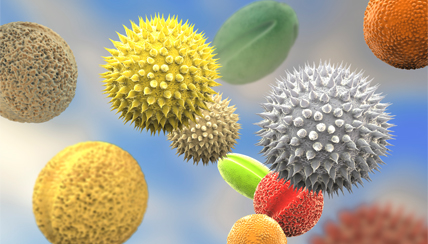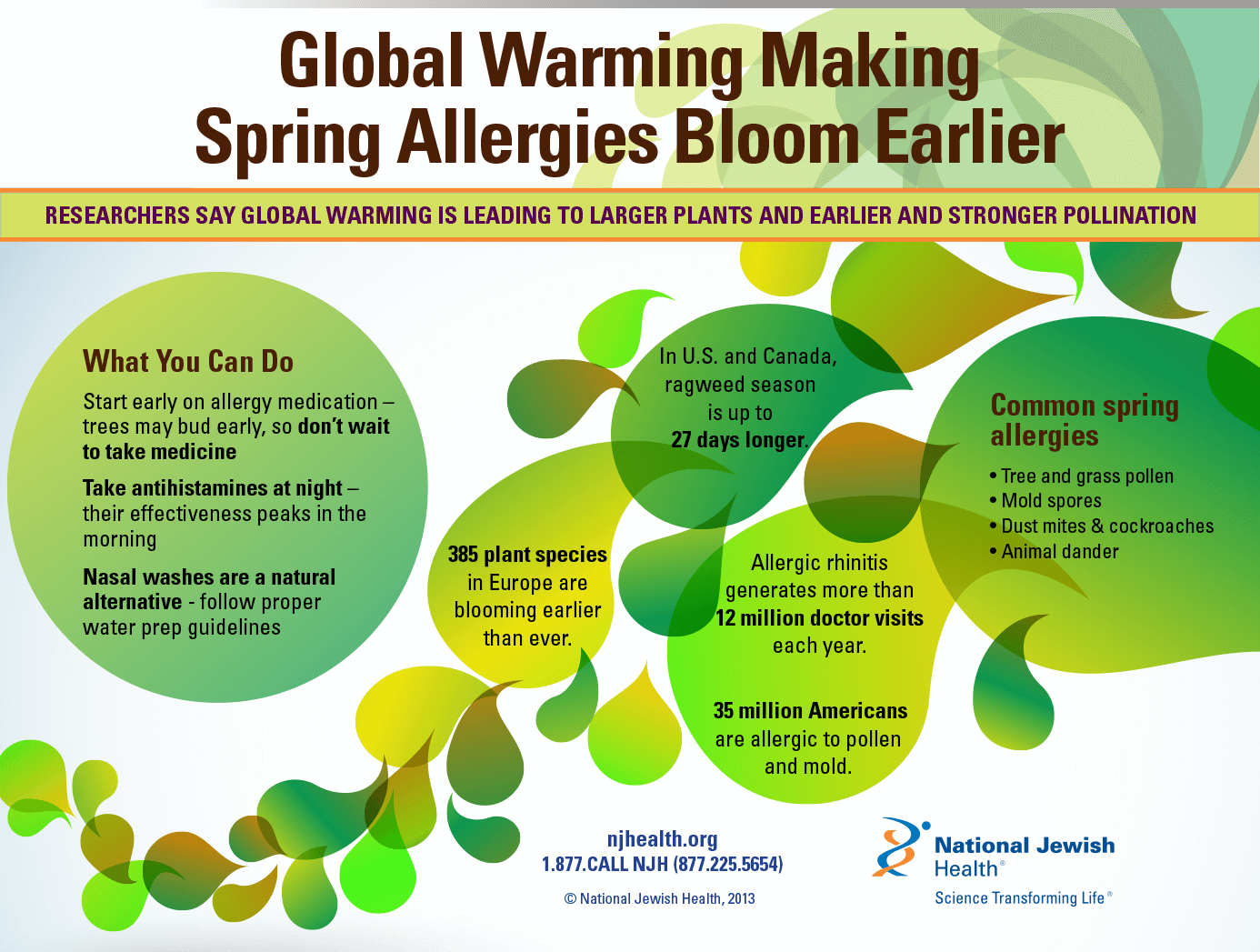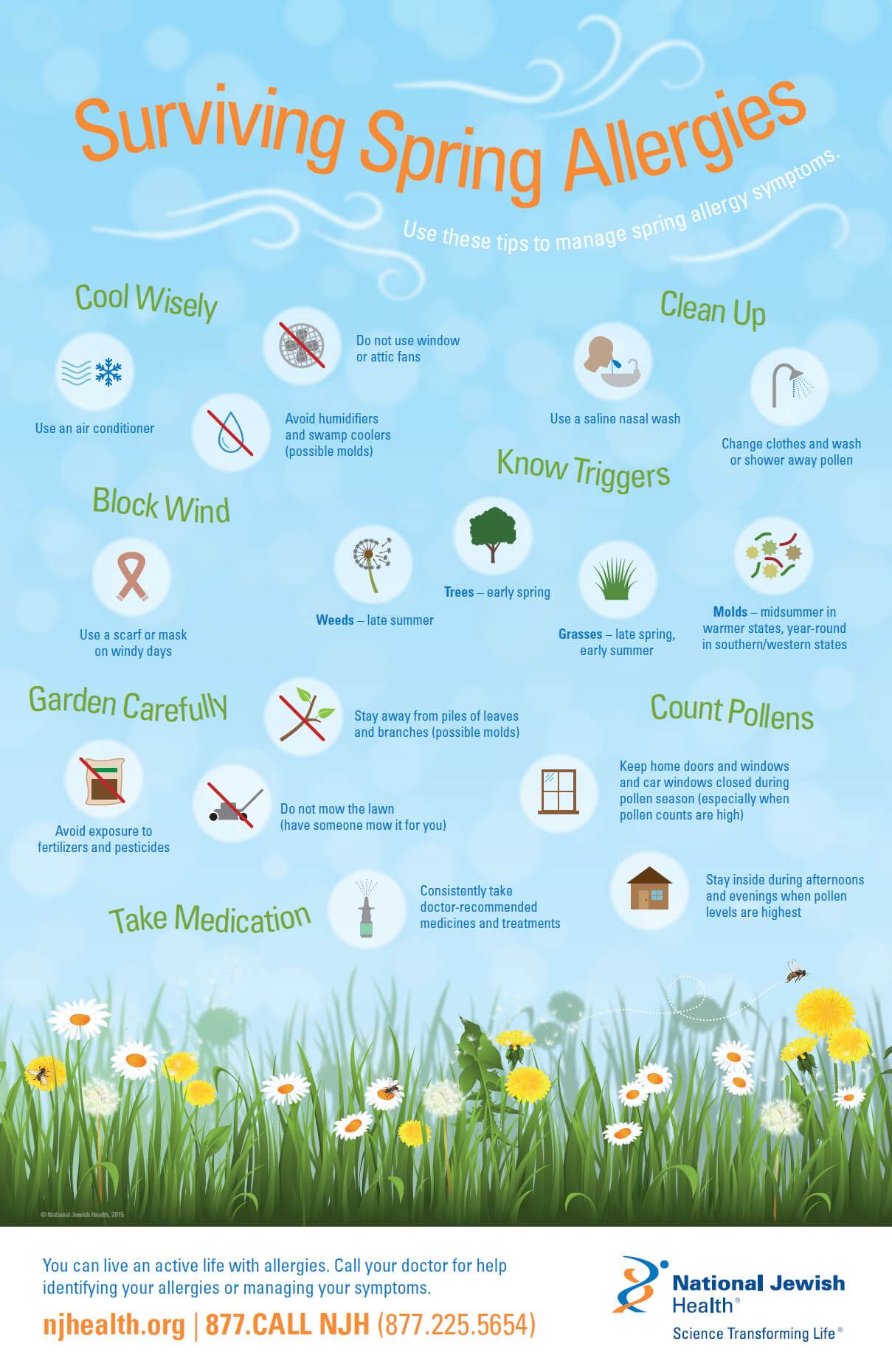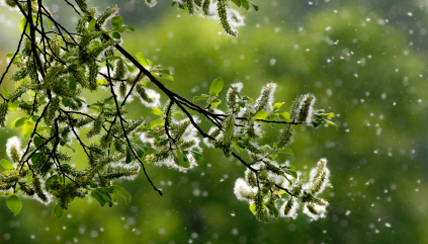It's Pollen Season in Colorado
Pollen from trees, grasses, and weeds can be inhaled and cause allergy and asthma symptoms. Pollen allergies are often seasonal, and allergy and asthma symptoms occur when the amount of pollen in the air is high.
Get tips from our experts on navigating life with allergies

National Jewish Health monitors pollen levels at its main health campus in Denver, Colorado. On weekday mornings, a technician retrieves a slide from a Burkard pollen and spore sampler. The slide is covered with a sticky substance to which pollen grains have adhered during the previous 24 hours. The technician then stains the slide, puts it under a microscope, and identifies and counts pollen grains to determine what kind and how much pollen is in the air.
The resulting pollen count is then distributed to various National Jewish Health physicians, the National Jewish Health clinical research unit, the local media, and it is also posted here on the website.
The pollen counts help inform physicians’ discussions with their patients about allergies and symptoms. They are used by clinical researchers at National Jewish Health who are evaluating potential allergy medications. The pollen counts are also tracked year over year to identify and compare trends.
NOTE: Our pollen collection process is heavily dependent on having good weather conditions for gathering the sample and at times, we are unable to provide accurate data. In these cases, please refer to the seasonal year-over-year data we provide, as it is generally a good indicator of current conditions.

Common Spring Allergies
- Tree and grass pollen
- Mold spores
- Dust mites & cockroaches
- Animal dander
Springtime Allergen Facts
- In the U.S. and Canada, ragweed season is up to 27 days longer than before.
- 385 plan species in Europe are blooming earlier than ever.
- Allergic rhinitis generates more than 12 million doctor visits each year.
- 35 million Americans are allergic to pollen and mold.
What You Can Do
- Start early on allergy medication - trees may bud early, so don't wait to take medicine
- Take antihistamines at night - their effectiveness peaks in the morning
- Nasal washes are a natural alternative - follow proper water prep guidelines

Cool Wisely
- Use an air conditioner
- Do not use window or attic fans
- Avoid humidifiers and swamp coolers (possible molds)
Clean Up
- Use a saline nasal wash
- Change clothes and wash or shower away any pollen
Block Wind
Use a scarf or mask on windy days
Known Triggers
- Weeds - late summer
- Trees - early spring
- Grasses - late spring, early summer
- Molds - mid summer in warmer states, year round in southern/western states
Garden Carefully
- Avoid exposure to fertilizers and pesticides
- Do not mow the lawn (have someone mow it for you)
- Stay away from piles of leaves and branches (possible molds)
Count Pollens
- Keep home doors and windows and car windows closed during pollen season (especially when pollen counts are high)
- Stay inside during afternoons and evenings when pollen levels are highest
Take Medication
Navigating Life With Allergies
While spring is in bloom, not everyone is excited about it. For those who have allergies, it can be a difficult time as the body tries to adjust to all that's floating in the air and growing from the ground up. You can trust us and our allergy experts to help you cope with allergy symptoms and find relief.

Allergy Tips
A large part of dealing with allergies is being proactive to treat your symptoms before they even begin. Clues for treating allergy symptoms:
- Spring Allergy Tips
- Summer Allergy Tips
- Steps to Get Ahead of the Spring Allergy Season
- Tips to Avoid and Treat Insect Stings
- Tips to Help Get a Good Night's Sleep Despite Allergies
Nasal Wash Treatment
Many people with asthma or other lung problems also have nasal and sinus symptoms. Drainage from your nose and sinuses can make asthma worse, especially at night. A salt water nasal wash, or nasal irrigation, can help reduce this.
- Nasal Wash- A Guide
- Nasal Wash Treatment
- Using the Sinus Rinse Kit Technique
- Making The Nasal Wash Solution
- View all nasal wash videos
~National Jewish Health
Selling Your Home?
Get your home's value - our custom reports include accurate and up to date information.




